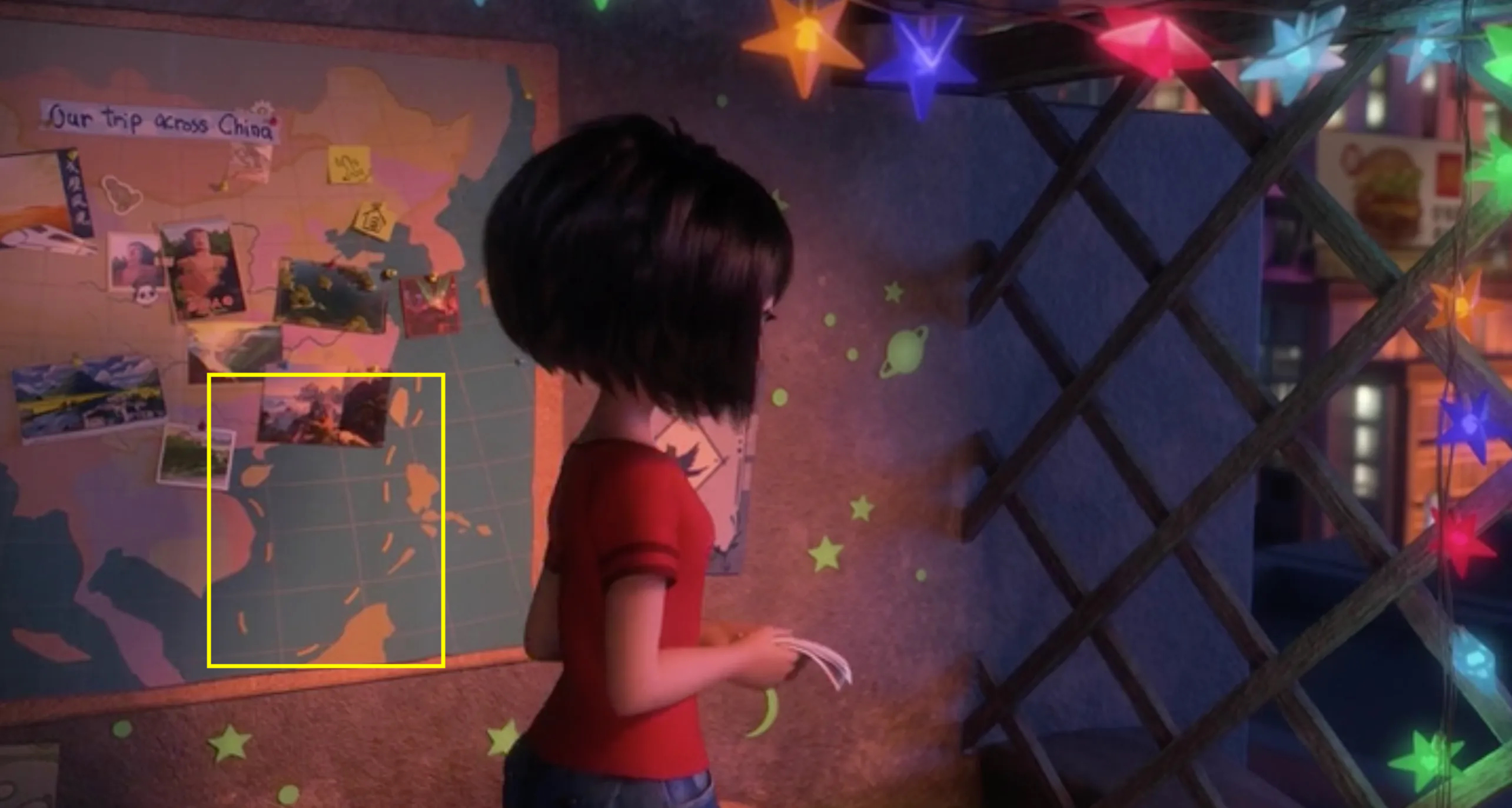
Tensions between China and Vietnam over the South China Sea have upset the political dynamic in Barbie Land.
Vietnamese officials are banning the release of “Barbie,” the big-budget movie based on the Mattel toy starring Margot Robbie over a map of the South China Sea that features the pro-China Nine-Dash Line. It is the latest movie to be banned in Vietnam over similar images of maps of the South China Sea that imply China has a broad claim of sovereignty over the body of water.
Vi Kien Thanh, director of the Vietnam Cinema Department, told local Vietnamese news outlets that the ban, decided by the National Film Evaluation Council, was over a shot in the film featuring the map. It is unclear what role the map of the South China Sea plays in the film directed by Greta Gerwig. The movie releases worldwide on July 21 and features Robbie as Barbie, who is cast into the real world from her hot pink homeland.
The Nine-Dash Line is used on charts by China to back their claims to sovereignty over the majority of the South China Sea. Beijing’s claims run counter to claims from other countries in the region like Vietnam, Malaysia, Taiwan and the Philippines.
Vietnam has also banned movies like “Uncharted” and “Abominable” over similar maps featured on screen, Variety reported. TV shows have also run into problems, including “Madam Secretary,” which was told in 2020 to remove scenes with the Nine-Dash Line featured.
Multiple countries have claims to the South China Sea, which borders the Philippines, China, Taiwan, Vietnam and Malaysia. China has used the Nine-Dash Line to exert a historical claim to the water and disputed islands following World War II.

China has used U.S.-made movies to advertise itself in a better light and in relationships with the United States. For example the story of “Mulan,” which Disney remade as a live-action which aimed to be a box-office hit in China. The movie ultimately caused a backlash in the United States after it thanked a number of Chinese entities in Xinjiang, where a number of Uighur Muslims were kept in internment camps.
As part of the efforts to make “Mulan” a Chinese hit, Disney shared the script with Chinese authorities, The New York Times reported. For Hollywood, China is a massive market that was worth almost $5 billion in 2022.
Beijing’s influence on Western movies is well known, with freedom of speech advocacy organization Pen America authoring a report on China’s influence on movies.
“While individual compromises may seem minor or worthwhile in exchange for the opportunity to engage with China’s population, the collective global implications of playing by Beijing’s rules need to be recognized and understood before acquiescence to Chinese censorship becomes a new normal in countries that have prided themselves for their staunch free speech protections,” reads the report.
China also is aware of how it can use movies and tv shows to influence others, Alexander Vuving, a professor with Daniel K. Inouye Asia-Pacific Center for Security Studies, told Radio Free Asia in November 2021.
At the time, Netflix had pulled two episodes of the Australian show “Pine Gap” from its offerings for the Philippines and the entire series from Vietnam over objections to a map showing the Nine-Dash line. In the Philippines, the decision came after Philippine officials raised objections to the map, saying that China uses this to indoctrinate people to their South China Sea claims.
The Philippines won an international maritime dispute in 2016 over the Chinese occupation of the Scarborough Shoal. Beijing never recognized the ruling.

Chinese officials have used popular media to push other policy points with the U.S.
Also in 2016, Chinese space officials used plot points from “The Martian,” starring Matt Damon as a stranded American astronaut on Mars. In the movie, in a departure from the novel the film was based on, China’s space program has a major role in helping Damon’s character.
“When I saw the U.S. film ‘The Martian’, which envisages China-U.S. cooperation on a Mars rescue mission under emergency circumstances, it shows that our U.S. counterparts very much hope to cooperate with us,” Xu Dazhe, the former chief of the China National Space Administration said at the time, according to Reuters.
“However, it’s very regrettable that, for reasons everyone is aware of, there are currently some impediments to cooperation.”
Last week, the Department of Defense updated its policies for working with movie studios to include that a studio does not plan to or comply with Chinese censorship, Politico reported.
This likely comes as a result of “Top Gun: Maverick,” as the studio removed Taiwanese and Japanese flags from the flight jacket worn by Tom Cruise’a character. The flags were ultimately restored.
The DoD “will not provide production assistance when there is demonstrable evidence that the production has complied or is likely to comply with a demand from the Government of the People’s Republic of China … to censor the content of the project in a material manner to advance the national interest of the People’s Republic of China,” the revised guidance reads, according to Politico.





